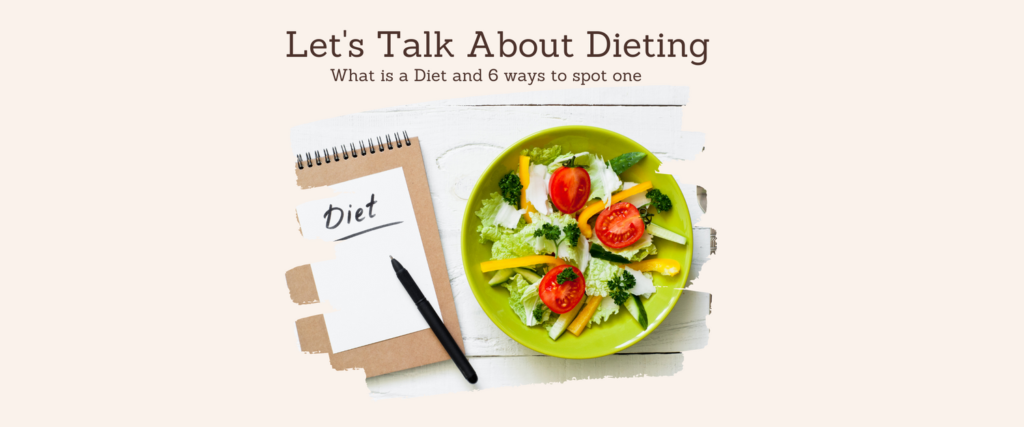
I want to do a small series on dieting for this blog. Why? I believe that we talk about dieting a lot in the anti-diet world, but often it is poorly defined. There is a lot of misinformation out there on dieting.
For many folks with eating disorders, a diet was their “gateway”. Even those of us who manage to diet and not develop disordered eating behaviours, are harmed by dieting. This harm often takes the form of yo-yo dieting, which is when we vacillate between restricting our food and overeating. Often our body weight might yo-yo as well, not because there is anything wrong with your body, but because it is struggling to keep up with
Today’s post will simply be a definition of dieting. And because so many of us no longer diet, but rather participate in “lifestyle changes”, I also include six signs that your lifestyle change is a diet.
What is dieting?
According to the Oxford Language/Google dieting is:
(a verb) to restrict oneself to small amounts or special kinds of food in order to lose weight.
Oxford definition of dieting
What has become tricky is that dieting now goes by many other names. Often it will be called a lifestyle change, a way of eating for life, trying to be healthier or a specific copyrighted diet like Whole30, WW (Weight watchers) and others.
How do you know you’re on a diet?
Since there are so many different names dieting can go under, it can be tricky to know if you’re on one. Here are some ways to know your latest lifestyle change is actually a diet:
- It cuts out whole food groups such as carbohydrates. Usually this food group, or type of food is demonized as the Sole Evil causing All Fatness in the World.
- It emphasizes a specific food group such as fat or protein as something misunderstood historically.
- Vegetables are always the Holiest of Foods.
- Gluten, dairy and sugar are cut out just because they are Pure Evil.
- These changes are done in the name of weight loss. If the diet claims it is actually about health, health is achieved through deprivation/restriction and should have some weight loss.
- Portions are provided and it’s implied that it is more important to eat these portions than it is to listen to your own internal body signals. In fact if you are hungry or experience difficulty following the prescribed plan, there is something wrong with you, not the lifestyle.
Now that you have some idea of what a diet looks like when it’s in disguise, I’ll leave you with a question.
If weight loss wasn’t promised, would you follow the food rules the lifestyle change is providing you?
If not, it is safe to say that it is probably a diet.
In my next blog post I’d like to talk about the diet cycle, sometimes called the diet-binge cycle, and why it isn’t your fault if you find yourself over eating after periods of restriction.
As always sign up for our newsletter to learn more and join our growing community!

One thought on “Let’s Talk about Dieting”
Comments are closed.